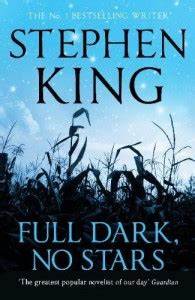In this novel from 1925 Maugham's theme is coming to terms with adulthood and the development of empathy. Kitty Garstin is a pretty, middleclass girl, favoured by her parents because she's prettier than her younger sister Dorothy. But plain Dorothy gets engaged first, which Kitty takes as something of a slur on her, so she accepts the first proposal that comes along - from a talented, decent-looking young bacteriologist called Walter Fane. She barely knows him, doesn't really like him let alone love him, but he does have the advantage of a posting in Hong Kong.
Once in the colony Kitty soon gets bored and plunges into an affair with Charlie Townsend, the Colonial Secretary. He's an older man, horribly vain and self-centred, but Kitty is infatuated and, at the same time, relishes betraying her dull husband. Walter finds out and, icy-cold, issues an ultimatum. Either she comes with him to a cholera-ridden city up-country or he'll divorce her, ruin her reputation and, more importantly, Townsend's prospects of ever becoming governor. Kitty assumes Townsend will throw up his career and run away with her. Of course he won't. He loves his life and is deeply attached to his plain, undemanding wife.
So Kitty goes with Walter, not caring if she lives or dies. The city really is hell - the dead lie in the streets, the military is trying to organise things, and the only functioning healthcare centre is a French nunnery. Kitty meets a strange, prematurely bald little man called Waddington, the deputy commissioner in the area. He is deeply immersed in the community and knows everything about everyone. He introduces Kitty to the nuns who absolutely revere Walter for his work and effort. Kitty has no education and no real talent, but she can help out by looking after the abandoned Chinese girls. Initially they are ugly little monsters to her, but then she recognises their humanity. She visits Waddington at home and finds out he lives, unmarried, with a Mandarin noblewoman - a double outsider in Southern China - who is utterly devoted to him. As Kitty discovers the humanity in others, so she finds it within herself. She realises she is pregnant. Is it Townsend's or is it Walter's? Townsend doesn't matter to her any more. Having seen Walter with babies dying of cholera she knows he will accept the child (she's convinced it will be a girl) and love it. She aches to tell him - but Walter catches the cholera (he may have been experimenting on himself) and dies.
Kitty has to return to Hong Kong, where she is met by Dorothy Townsend, who is every bit as caring and charitable as everyone says she is. For a time, at Dorothy's insistence, Kitty lives in the Townsend home. Charlie tries it on, of course, but gets his come-uppance. Kitty finally takes control of her life and goes home to London. Her father, whom she has never really appreciated, has accepted a post in the West Indies. His wife has died while Kitty was en route home. Kitty, now properly adult, pledges to go with him.
A delightful book, written in eighty very short chapters yet deeply incisive, with wonderfully rounded, compulsive characters. I enjoyed The Magician more, because it's my kind of story, but The Painted Veil is a much better book - on a par with The Moon and Sixpence.
'







